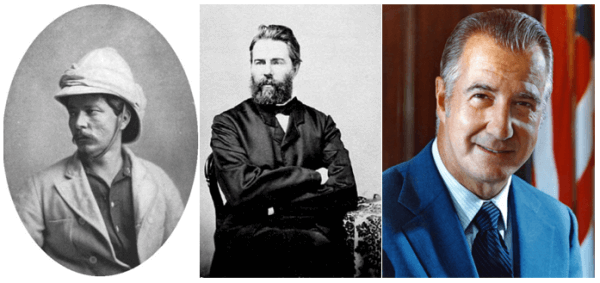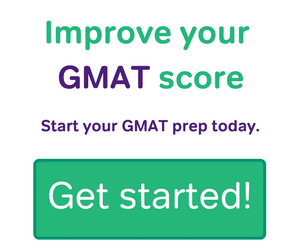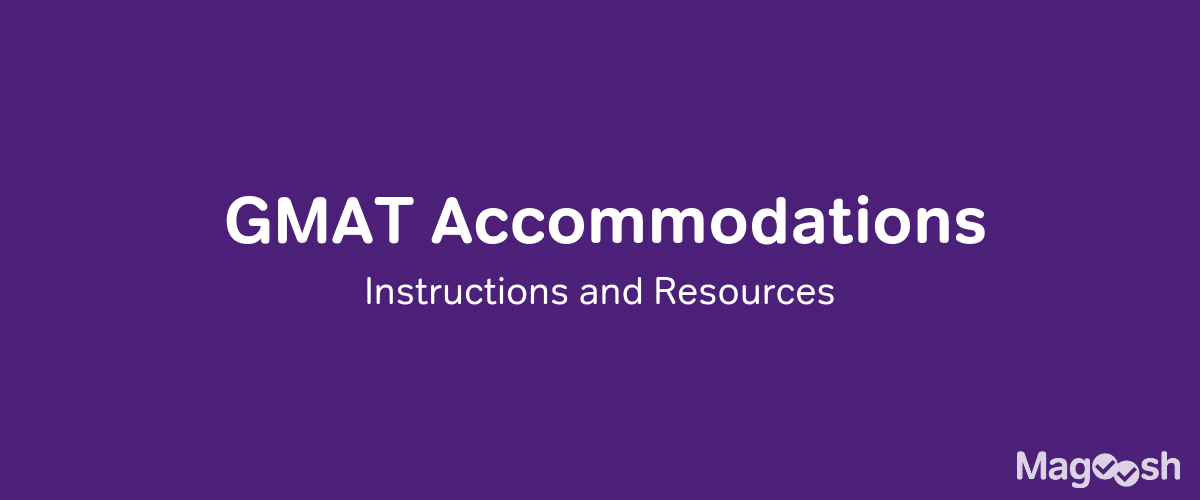The word “however” is a tricky word with an interesting history. First, a couple practice questions in which this word appears.
1) After the merger of Fastco and Celeriton, the CFO of Fastco has been charged with reporting the earnings of the employees of both companies, and however he may choose to do so, he will have to abide by relevant state tax laws.
(A) however he may choose to do so
(B) in order to choose to do so
(C) in whatever ways he is choosing to do this
(D) by choosing to do this
(E) when he chooses to do so
2) Of all the things that Washington could have done in conducting the American Revolution, the war against the British would not have succeeded without French intervention.
(A) Of all the things that Washington could have done in conducting the American Revolution
(B) Washington might have conducted the American Revolution in a number of ways
(C) Besides what Washington did in conducting the American Revolution
(D) However Washington may have conducted the American Revolution
(E) Washington conducted the American Revolution, however
The word “however”
Because of an unusual history that I will try to convey, this word has two distinct meanings and can be used in two different ways on the GMAT. I will call these uses “Use #1” and “Use #2.” Use #1 is the original and logical consistent use of the word, and because this use as fallen out of fashion, many students are unfamiliar with this use. Use #2 is a more modern use of the word, originally colloquial, that has gained wide acceptance: this is the meaning that most students recognize. Because Use #2 is much more familiar, I will start with that.
Use #2: synonym for “nevertheless”
Use #2 expresses contrast. The technical term for this use is a “conjunctive adverb.” Essentially, it is synonym for “nevertheless.” BTW, “however” in Use #2 and the word “nevertheless” are conjunctive adverbs, that is, adverbs that tell us something about the logical relationship of two clauses. Consider these sentences:
3) Climate change causes a gradual warming of the world’s oceans; however, this may result in greater extremes of either hot or cold weather in specific regions.
4) The profits in the American regions of Hampshire Industries rose by 3% in the past year, but the staggering losses in the European and Southeast Asian sectors, however, have put the company at risk.
In each sentence, the word “however,” used in Use #2, as a conjunctive adverb, makes even clearer the contrast between the two clauses: their logical relationship is one of contrast. Even though the term “conjunctive adverb” may be new, this is the very widespread and common use of the word “however,” and I believe this use, Use #2, is what you already understand well.
Use #1: indefinite adverb
This was the original meaning of the word and, as we will see, is the most logical meaning of the word. Nevertheless, this use is unfamiliar to modern readers, especially those unaccustomed to sophisticated writing.
This is a longer discussion. We need to understand the nature of indefinites.
Let’s start with pronouns. There are four kinds of pronouns:
= personal = {I, you, he, she, it, they} = e.g. “I like her but don’t like them.”
= demonstrative = {this, that, these, those} = These “demonstrate” something by indicating it. e.g. “This is faster than any of those.”
= relative = {who, which, that} = These introduce clause, that is, they “relate” two clauses, e.g. “Here is the book that I recommended.” “Theodore Roosevelt is the President whom I admire the most.”
= interrogative = {who, what, which} = These are question words = “Who wrote that book? What is the book’s argument?”
Notice that there is a certain overlap between the relative pronouns and the interrogative pronouns. This is a pattern that will continue below.
Clauses can also begin with relative adverbs {how, where, when, why}
5) The back of the box tell us how to construct the device.
6) I know why the caged bird sings.
All of these words also can be used as interrogative adverbs, words that begin questions.
7) Where can we find a subway station?
8) When was the period of the Crusades in Europe?
OK, the relative and interrogative forms of all these words are spelled the same—they just have different uses. All of these words also have an “indefinite” form, which involves sticking the suffix “-ever” on the back of the word.
Indefinite pronouns: whoever, whatever
Indefinite adjective: whichever
Indefinite adverb: whenever, wherever, however
Here are two blog articles about the agreement and logic of indefinite pronouns.
Think about the difference between “who” and “whoever.” With either the relative or interrogative use of “who,” I have the identity of a particular person in mind.
9) relative = “I know who broke the window.”
10) interrogative = “Who broke the window?”
In the first, I know the identity of the specific person. In the second, I want to know the identity of the particular person. Either way, the focus is on one individual in particular.
By contrast, when I use the indefinite, I am saying that I don’t know and don’t care, at least at that moment, about the identity of a specific individual, and even with that identification left uncertain, I am going to make my statement.
indefinite = “Whoever broke the window will have to pay for its repair.”
You see, this sentence is conveying information that remains true irrespective of the identity of the particular individual who broke the window.
In general, we use the indefinite form of a word when we want to make a more general statement that doesn’t depend on the particulars.
The relative or interrogative use of the adverb “where” refers to a specific location.
11) relative = Henry Morton Stanley confirmed where the Nile has its source.
12) interrogative = Where is the tallest mountain in South America?
If knowledge of a specific location doesn’t matter to make our statement, we use the indefinite adverb “wherever.”
13) Wherever you live, you will have to pay taxes.
14) Wherever the Moon is in the sky, we see only the half facing Earth.
The relative or interrogative use of the adverb “when” refers to a specific time.
15) relative = When Moby Dick was published, only a few intellectuals recognized its tremendous significance.
16) interrogative = When is Venus visible as the Evening Star?
If knowledge of a specific time doesn’t matter to make our statement, we use the indefinite adverb “whenever.”
17) Whenever you travel to San Francisco, it would be a good idea to bring a coat.
18) Whenever it rains, the basement leaks.
The relative or interrogative use of the adverb “how” refers to a specific way of doing something.
19) relative = The diagram demonstrates how ancient Near Eastern people understood their world.
20) interrogative = How do you get to Scarborough Fair?
If knowledge of a specific way of doing something doesn’t matter to make our statement, we use the indefinite adverb “however.”
21) However you travel into NY City during the morning rush hour, it will not be an easy experience.
22) However this chair is assembled, we have to assemble over a hundred copies of it in the next two hours.
You can understand an indefinite by temporarily removing the “-ever” suffix.
When we talk about “wherever something happens,” we are talking about a place “where something happens,” but we don’t care about the specific place.
When we talk about “whenever something happens,” we are talking about a time “when something happens,” but we don’t care about the specific time.
When we talk about “however something happens,” we are talking about “how something happens,” but we don’t care about the specific means by which it happens.
This is Use #1 of the word “however,” which fewer than 25% of GMAT takers truly understand.
The relationship between the two uses
If Use #1 was what the word originally meant, how did Use #2 come about? One common clause, used to express qualification or doubt or contrast, was “however that may be.”
23a) Spiro Agnew ascended to the office of Vice President, the highest office every held by a Greek-American; however that may be, he resigned shamefully, amid charges of corruption and tax evasion.
In that sentence, the word “however” is used in Use #1. In colloquial speech, this entire common clause, “however that may be,” was abbreviated to “however.”
23b) Spiro Agnew ascended to the office of Vice President, the highest office every held by a Greek-American; however, he resigned shamefully, amid charges of corruption and tax evasion.
In this version, “however” is used in Use #2. In general, Use #2 derived from a kind of abbreviation of the clause “however that may be” and similar clauses; in those original clauses, “however” was used in Use #1.
What’s legitimate?
Every authority on English grammar agrees that Use #1 is correct. This is unfamiliar to many modern readers, but it is perfectly correct, and appears on the GMAT SC.
Use #2 originally evolved as a colloquial mistake, an illogical mistake, but this usage has become so widespread that this is also accepted almost everywhere. In particular, you will see Used #2 on the GMAT SC as well. Both uses of “however” appear on the GMAT SC and can be used correctly by GMAT standards.
I will share a minority point of view. In my own opinion, I think Use #1 is the only logical and acceptable use of “however” and that Use #2 is an abhorrent illogical colloquialism that the well-spoken should scrupulously avoid. Admittedly, I am being far more conservative that the GMAT in this position, because the GMAT is fine with both uses. I may be one of the only people on the planet to have this opinion, though if T.S Eliot were alive, I could imagine that he would agree with me. Consider my position for you own writing, but know that GMAT accepts both uses as perfectly correct.
Summary
If the above article gave you any insights, you may want to look at the two practice questions again before reading the solutions below. Pay attention to how sophisticated writers use the word “however,” and notice any patterns.

Practice Problem Explanations
1) The correct response is (A).
Choice (A) uses the word “however” in its original Use #1 sense, as an indefinite adverb.
Notice the meaning. The CFO most report the earnings. How he reports these earnings is what he gets to choose, but he doesn’t get to choose whether to report the earnings.
(B) changes the meaning. The CFO doesn’t have a choice about whether he reports the earnings.
(C) is very wordy, and it contains a pronoun mistake: the pronoun “this” cannot have an action as its antecedent.
(D) changes the meaning and repeats the pronoun mistake.
(E) also changes the meaning. Reporting the earnings is not his choice. How to report the earnings is his choice.
The only acceptable answer is (A).
2) Version (A) is clumsy and wordy. We get the idea of Washington‘s choices, but this is a poor colloquial construction that has, at best, a tenuous connection to the rest of the sentence. This is incorrect.
Version (B) is correct on its own, but when inserted into the sentence, it creates a run-on with a comma splice. This is incorrect.
Version (C) changes the meaning: in the whole sentence, it almost makes Washington’s actions sound detrimental to the American cause!
Version (D) conveys the meaning in a grammatical correct form, using Use #1 of the word “however.” This one is promising.
Version (E) changes the meaning, insofar as it ignores the issue of Washington’s choices in conducting the war.
The only possible answer is (D).






Leave a Reply